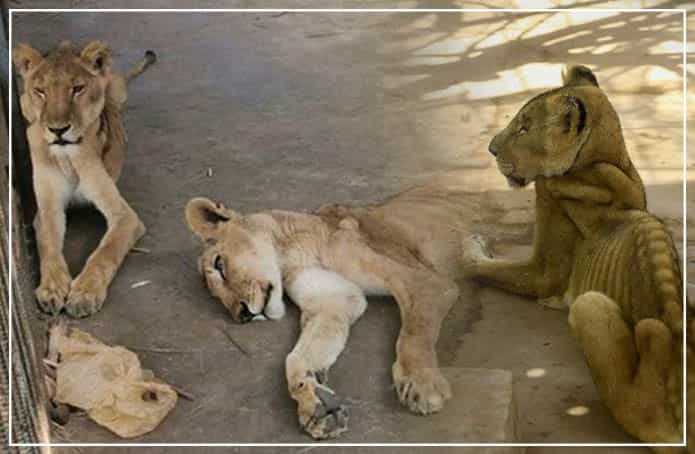
This month I’m looking at the Aksum series by Elizabeth Wein; I’ve already talked about A Coalition of Lions and The Sunbird. This post discusses The Lion Hunter, which is the first of a two-part sequence within the series. Please note that there are spoilers!
This book opens with the birth of Telemakos’s baby sister, and a catastrophic attack by the lion he loves. These two interwoven events set up a kind of cascading effect that ties together many of the plot threads and themes from the previous books, and sets up new complications.
So it’s only right that siblings are one of the things that run through the book. Medraut and Goewin; Goewin and Medraut and Lleu; Telemakos and Athena; Abreha and Priamos (and their dead and absent brothers). And, although it’s not stated in this book, nor does Telemakos know this is the case: Gwalchmai and Medraut (which becomes significant later). While Athena and Telemakos are the most obvious sibling pair, the relationship between the other siblings I mentioned all have their own complexity and place in the story.
It’s also right that much of the book deals with what are called at one point, “wounds to the soul.” Turunesh, Medraut, and Telemakos all suffer in their different ways with what we might call post-partum depression and/or PTSD today. This was generally treated with sympathy and depth throughout the story, and I appreciated that a lot. I also liked the “wounds to the soul” phrase as something that both fit the characters’ understanding of the world and was not horribly ableist.
But what this book sets up and builds toward is really Telemakos’s leaving of childhood. In the past two books, he has been extremely competent, resourceful, and wise, but he has still been a child. Now he is growing up, which I think is symbolized by the loss of the lions he captured when he was younger.
This means that Telemakos is so much in a transitional stage–at one point, Abreha says, “I expect he does not yet have the measure of his dominion” and this is true on several levels. There’s a running theme throughout this book and The Empty Kingdom of Telemakos being almost literally unable to see himself as others see him. For instance, he seems to truly believe that people call him Morningstar to laugh at his fair hair, whereas a reader might see the real affection and respect that others feel for him. I suppose this belief does keep him from being insufferably arrogant, however.
It’s also quite interesting to note what other people name Telemakos. Telemakos Morningstar, Lij Bitwoded Telemakos Meder, Beloved, Bright One, Sunbird, Boy. The different names and titles have varying resonances throughout the book, but it’s interesting to note how many of them are how others see Telemakos. None of them, even Athena’s Boy, are necessarily how he thinks of himself, although to me Morningstar felt the most accurate. (As is the case throughout the series, there are some comparisons to Lleu, specifically via the title of Bright One.)
Both Morningstar and Bright One are nicknames given to Telemakos after he and Athena arrive in the South Arabian kingdom of Himyar, which is ruled over by Abreha Anbessa, who is himself Aksumite and the brother of Priamos. Abreha is a fascinating character to me; Goewin calls him a “manipulative political serpent” and he is. But Telemakos also sees his kindness, before he learns to see what Goewin does. Abreha is really, I think, quite a bit like Telemakos: clever and kind, but also utterly ruthless in defense of what he loves.
One of the things that Himyar gives Telemakos is a sense of companionship. He is used to being set apart from other children, but this changes from his first meeting with Iskinder to his later dealings with the Scions. “Never in his life had Telemakos felt so loved, and so at ease, with others more or less his own age.” And this companionship pays off later.
The last major thread that I noticed is of maps, tracking, navigation. He’s given Ginevra’s cross-staff, he has his father’s skill in tracking, and he is sent to be an apprentice to Abreha’s Star-Master. The maps that he copies are a plot point, but they also have a deeper resonance. So much of this story is about Telemakos learning to find his way, both literally, and symbolically.
However, this book is not the entire story. The ending shifts from the sense of warmth and companionship that has typified Abreha’s court, into a sudden reversal of betrayal (arguably on both sides) and distrust. It’s not quite as bad as the ending of The Two Towers, but not by all that much. I’ve never successfully managed to read it and not begin The Empty Kingdom as soon as possible. So I don’t quite have a conclusion, because there isn’t quite a conclusion; there’s an ending, but that’s not the same thing. It’s not until the second book that the build up begins to pay off and Telemakos comes into his own. Also, spoiler: I cry many tears. Next week I’ll talk about why.
Book source: personal library
Book information: 2007, Viking/Firebird; YA


 Log in with Facebook
Log in with Facebook 














